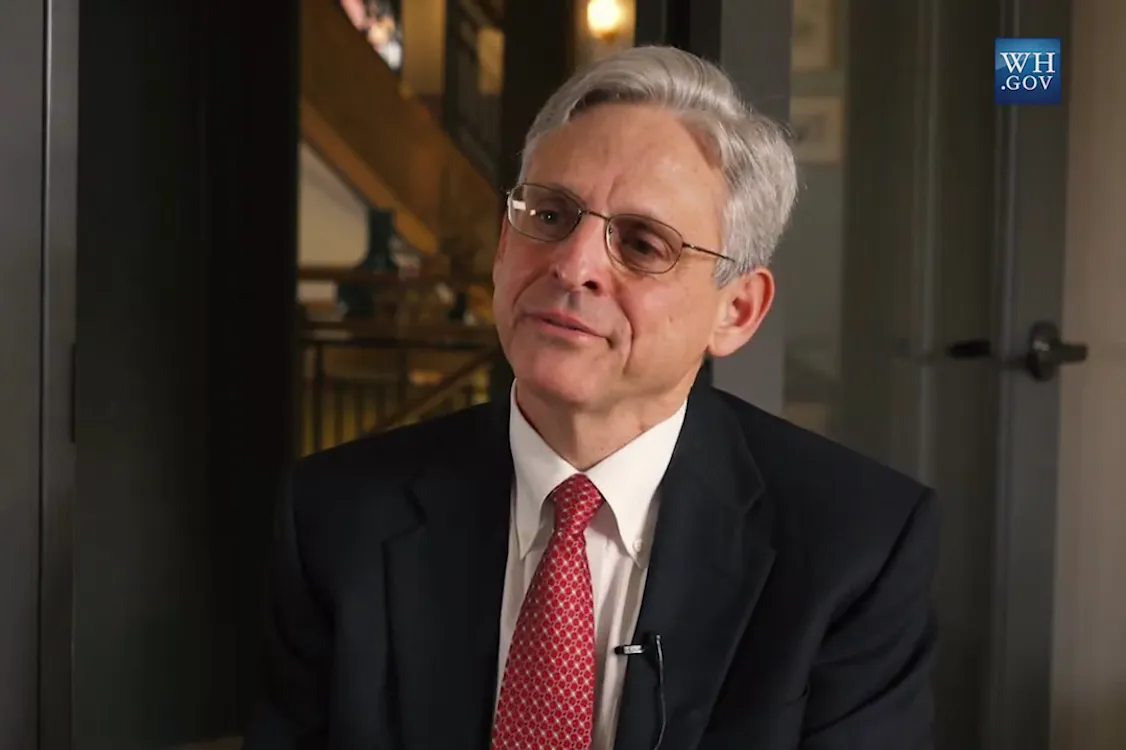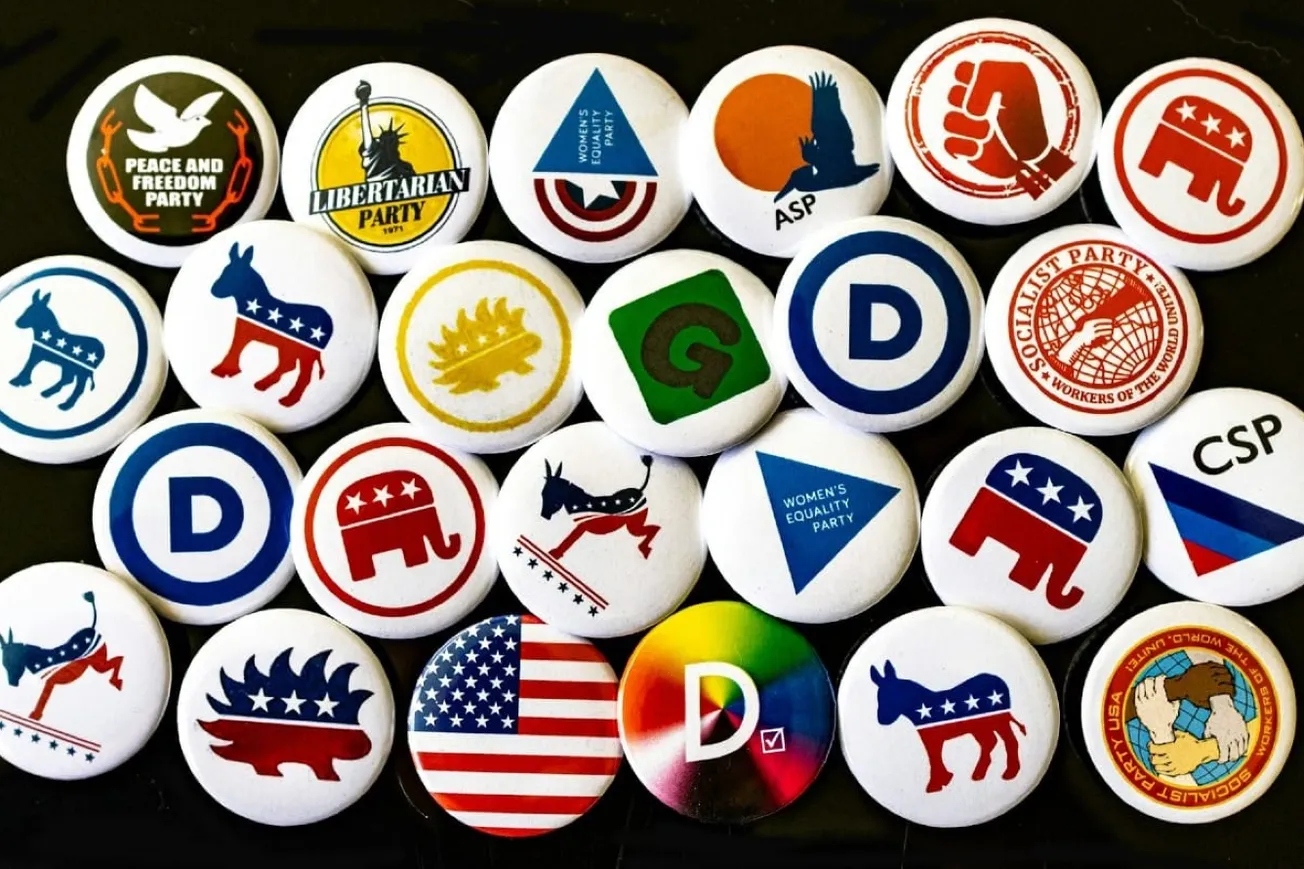Attorney General Merrick Garland asserted on Friday that criticizing the Justice Department (DOJ) for bias amounted to an 'attack' on an 'essential institution' of democracy.
When questioned about whistleblower allegations during a press conference, Garland responded, “I certainly understand that some have chosen to attack the integrity of the Justice Department, its components, and its employees by claiming that we do not treat like cases alike. This constitutes an attack on an institution that is essential to American democracy and essential to the safety of the American people. Nothing could be further from the truth.”
Ironically, Garland made this assertion after Special Counsel John Durham gave sobering testimony about the DOJ and FBI’s handling of the Russia probe earlier in the week. The Durham report concluded that the "DOJ and the FBI failed to uphold their important mission of strict fidelity to the law" throughout investigations into potential Russian election interference in 2016.
Garland must reverse his assertion for the following reasons.
Undermining Oversight Mechanisms
Firstly, the Constitution provides checks and balances, which are integral to a functioning democracy. Garland's stance of labeling legitimate congressional oversight as an attack on democracy contradicts the core democratic values of the nation. To highlight the importance of oversight, consider the following examples:
A report from May of this year revealed that the FBI improperly utilized its warrantless search powers to surveil U.S. citizens 278,000 times in 2021. This alarming situation calls for robust congressional oversight to protect citizens' rights.
Recently, the House Ways and Means Committee released extensive deposition transcripts where IRS whistleblowers alleged that Garland and IRS Commissioner Danny Werfel lied to Congress about the investigation into Hunter Biden. These allegations raise concerns about potential interference. Committee members from the Democratic and Republican parties were present during the depositions. Congress must fulfill its duty and thoroughly investigate the matter to uncover the truth.
Restoring Public Trust
The DOJ and the FBI are currently grappling with a significant credibility crisis in our nation, making it imperative for Garland to prioritize rebuilding public trust.
Multiple TIPP Polls have shown a widespread lack of trust in the DOJ and the FBI, underscoring the urgent need for decisive action. Most Americans believe that our justice system operates on a two-tier basis, where individuals affiliated with the Democratic Party often receive lenient treatment, while Republicans find themselves targeted for prosecution. This perception is reinforced by numerous examples, including high-profile cases like the prosecution of former President Trump and seemingly heavy-handed actions taken against individuals who happened to be bystanders on January 6.
The DOJ/FBI alums who played central roles in the Russia collusion probe, such as James Comey, Andrew McCabe, Peter Strzok, Lisa Page, and Andrew Weissmann, frequently appear on television, sharing their biased perspectives. This raises concerns among Americans about their clear partisanship and the potential influence it had on previous investigations.
Public trust and confidence are earned, not asserted through mere rhetoric.
To initiate the process of restoring public trust, it is vital for Garland to openly acknowledge the existence of this problem rather than dismissing or denying its validity. By adopting a defensive stance and disregarding these concerns, he inadvertently appears disconnected from the public’s sentiments, hindering any meaningful progress in rebuilding trust.
Freedom Of Speech Concerns
Americans place a high value on freedom of speech and consider it a crucial component of a thriving democracy. Legitimate criticisms play a crucial role in the democratic process. Therefore, Garland needs to embrace constructive feedback, as it can help the DOJ enhance its operations and strive to earn the utmost respect from the American people.
One valid concern is the frequent leaks from the DOJ to the media. The department should address the legitimate complaint by ending these leaks, which often lead to the insinuation of specific targets and undermine public confidence. Often, the leaks do not tell the whole story, and by the time the full story comes out, sufficient damage has been done even to an exonerated target. Think Russia-Russia-Russia and how an exhaustive report showed no proof of collusion between the Trump campaign and Russia.
Another complaint revolves around the FBI's tendency to engage in what can be described as "Rambo raids." The necessity of conducting highly visible and aggressive raids, such as the one at a former president's residence, without an urgent or compelling reason raises questions and generates public outrage. Similarly, incidents like the apprehension of distinguished individuals like Peter Navarro, who have served this country honorably, at the Nashville Airport and subjecting them to leg irons, warrant scrutiny and explanation.
Disregard For Transparency
For a public agency, transparency necessitates a willingness to address concerns, admit mistakes when they occur, and actively work towards resolving them. By adopting a defensive stance and dismissing any problems, Garland may convey the wrong impression that transparency is not a priority.
Take the case of FBI Form 1023, which alleges a criminal bribery scheme involving President Joe Biden. Initially, FBI Director Christopher Wray denied its existence. When faced with the possibility of contempt of Congress for failing to comply with a subpoena, the FBI eventually shared the document.
Last week, whistleblowers revealed that the FBI had authenticated the Hunter Biden laptop in November 2019 by matching the device number to Hunter Biden's Apple iCloud ID. Despite being aware of its authenticity, the FBI actively urged social media companies to suppress the news in October 2020. Fifty-one senior intelligence officials wrongly claimed that the laptop was Russian disinformation days before a crucial presidential debate, a point President Biden repeatedly leveled against Trump. These two events by themselves could have changed the outcome of the 2020 election.
These instances highlight a concerning pattern where transparency appears to have been disregarded. Rather than openly addressing and acknowledging these matters, there is a tendency to deny or withhold information, potentially undermining the public's trust in the transparency of the Justice Department.
The DOJ and FBI's interference in the 2016 election by absolving Hillary Clinton of her email server issues, and their role in suppressing the dissemination of Hunter Biden's laptop story in 2020 through collaboration with big technology companies, have raised immense concerns. As we approach 2024, the Justice Department and FBI find themselves deeply entangled and face accusations of election interference from a significant portion of the country.
To many observers, America looks like a third-world nation like Pakistan or Syria, where government agencies routinely weaponize against political opponents. Garland must restore America’s brand to what it was when he was at Harvard Law School many years ago. Americans deserve nothing less.
Related tippinsights editorials:
Trump Should Attack Smith's Crime-Fraud Exception Strategy
Jack Smith's History Of Aggression May Weaken His Case
Six Strong Reasons Trump Will Come Out Ahead After All
Deep State vs. Trump: Persecution Through Prosecution
5 Reasons Why Merrick Garland Must Stop Lawfare Against Trump
Like our insights? Show your support by becoming a paid subscriber!









